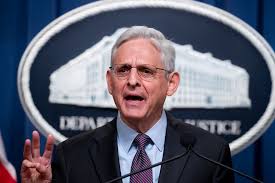Glencore Pleads Guilty and Resolves Foreign Bribery and Market Manipulation Charges — Pays Over $1.1 Billion (Part I of V)

In a long-anticipated and major enforcement action, the Justice Department and the Commodities and Futures Trading Commission resolved a sprawling investigation with Glencore International A.G. and Glencore Ltd, a Swiss-based commodity trading and mining company.
Glencore entered guilty pleas for FCPA violations and a commodity price manipulation scheme. Glencore paid over $1.1 billion to resolve these two major investigations.
The resolution in the U.S. was part of a coordinated set of criminal and civil resolutions involving the United States, the United Kingdom and Brazil.
Glencore paid bribes to secure oil contracts, avoid government audits, and even bribed judges to make lawsuits disappear.

The Justice Department imposed an independent compliance monitor for three years. DOJ credited $166 million in payments made to resolve parallel investigations in other countries.
In a separate case, Glencore admitted to a muti-year scheme to manipulate fuel oil prices at two of the busiest commercial shipping ports in the United States. Glencore agreed to pay a criminal fine of over $341 million and forfeit $144 million, and to submit to a three-year term of an independent compliance monitor.

In 2021, a Glencore employee, Anthony Stimler, plead guilty to FCPA and money laundering violations. Stimler is identified in various parts of the Statement of Facts and Information filed in connection with the Glencore settlement documents.
Foreign Bribery
As part of the global resolution of foreign bribery allegations, Glencore reached parallel resolutions with U.K.’s Serious Fraud Office, Brazil’s Ministèrio Público Federal (MPF) and the CFTC. DOJ agreed to credit a total of nearly $256 million in payments that Glencore makes to the CFTC, the court in the U.K., as well as authorities in Switzerland, in case Glencore reaches a resolution with Swiss authorities within one year.
As recounted in the guilty plea papers, Glencore admitted to executing a scheme over a ten-year period to pay more than $100 million to third parties knowing that a portion of these payments would be used to pay bribes to officials in Nigeria, Cameroon, Ivory Coast, Equatorial Guinea, Brazil, Venezuela and the Democratic Republic of the Congo (DRC).
Under the Corporate Enforcement Guidelines, DOJ cited the following factors in reaching its resolution with Glencore: (1) the seriousness of the offenses, which spanned over a ten-year period, and involved high-level employees and agents of the company; (2) Glencore’s failure to voluntarily and timely disclose the conduct to DOJ; (3) the state of Glencore’s compliance program and the progress of its remediation; and (4) Glencore’s resolutions with domestic and foreign authorities, and its continuing cooperation.
Glencore did not receive full credit for cooperation and remediation because it was delayed in producing relevant evidence and it did not discipline certain employees involved in the misconduct. While Glencore enhanced its compliance program, its new program has not been fully implemented or tested.

Glencore earned a 15 percent discount from the bottom of the U.S. Sentencing Guidelines Range.
Commodity Trading
With respect to commodity trading, between 2011 and 2019, conspired to manipulate benchmark prices published by S&P Global Platts for fuel oil products at the Port of Los Angeles and the Port of Houston. Glencore traders sought to increase profits and reduce costs on contracts to buy and sell fuel oil, as well as certain derivative positions that Glencore held. On certain pricing days, Glencore submitted false orders to buy and sell to Platts during the trading window for the Platts price assessments with the intent to artificially push the price assessment up or down.
For example, when Glencore had a contract to buy fuel oil, employees submitted offers during the Platts window for the purpose of pushing down the price assessment and hence the price of the fuel oil that it purchased. The submissions were made for the purpose of artificially affecting the relevant price assessment so that the price of fuel oil that Glencore bought or sold did not reflect legitimate forces of demand and supply.
Between September 2012 and August 2016, Glencore employees conspired to manipulate fuel oil prices for a particular counterparty, Company A, for transactions involving Los Angeles 380 CST Bunker Fuel.

Between January 2014 and February 2016, Glencore employees also formed a “joint venture” with Company A which involved buying fuel oil from Company A at prices artificially depressed by manipulation of Platts benchmarks, and between January 2011 and August 2019, Glencore employees conspired to and did manipulate the price of fuel oil through Platts pricing benchmarks, including derivative positions for U.S. Gulf Coast High-Sulfur Fuel Oil.
Glencore plead guilty to one count of conspiracy to engage in price manipulation. Under the plea agreement, Glencore received a credit of $242 million in payments made to the CFTC as part of its civil settlement. In applying the Corporate Enforcement Policy, DOJ cited the following factors: (1) the nature and seriousness of the offense; (2) Glencore’s failure to fully and voluntarily self-disclose the offense conduct; and (3) the state of Glencore’s compliance and progress to enhance its compliance program















1 Response
[…] Source link […]